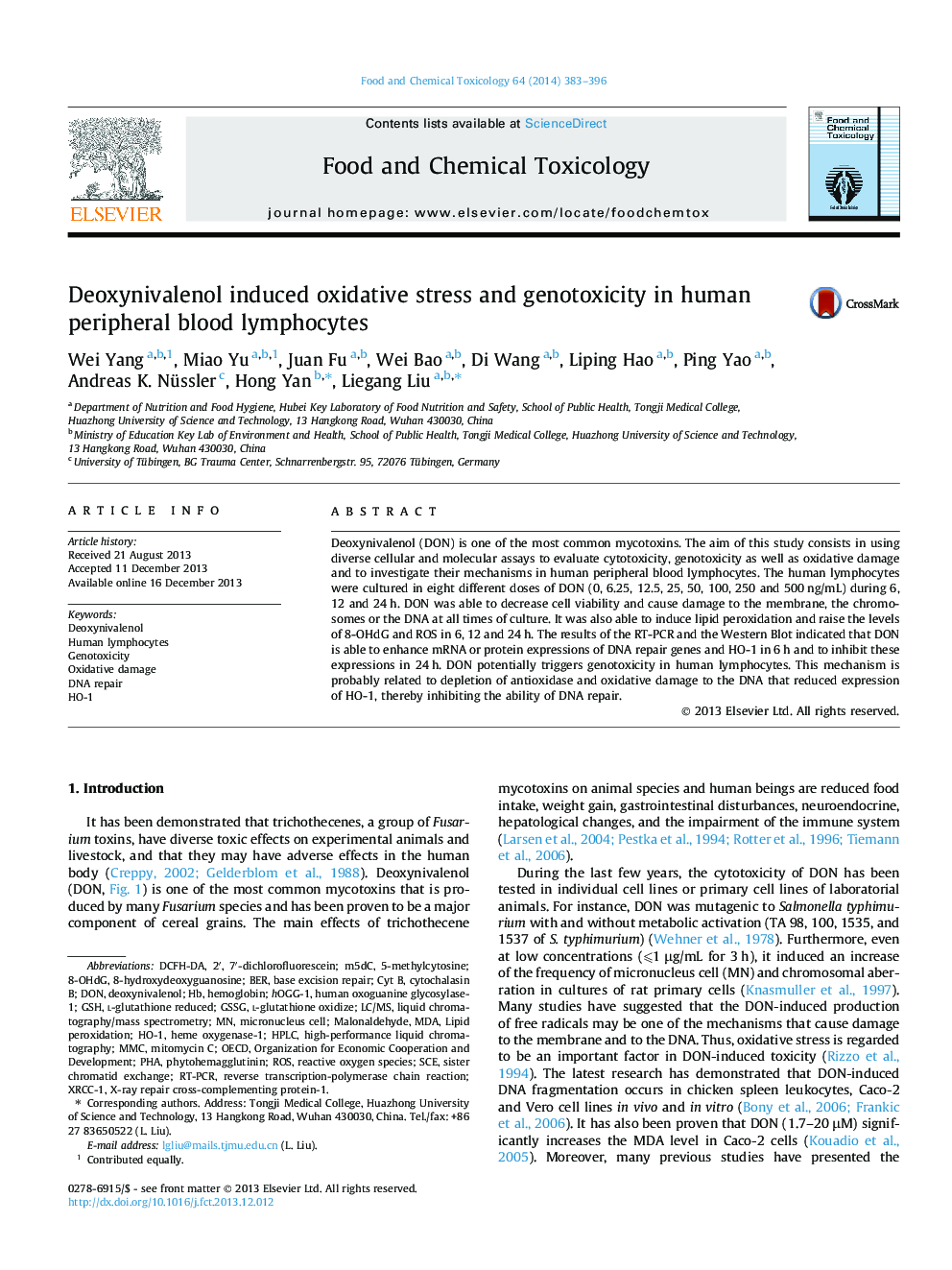| Article ID | Journal | Published Year | Pages | File Type |
|---|---|---|---|---|
| 5850957 | Food and Chemical Toxicology | 2014 | 14 Pages |
Abstract
Deoxynivalenol (DON) is one of the most common mycotoxins. The aim of this study consists in using diverse cellular and molecular assays to evaluate cytotoxicity, genotoxicity as well as oxidative damage and to investigate their mechanisms in human peripheral blood lymphocytes. The human lymphocytes were cultured in eight different doses of DON (0, 6.25, 12.5, 25, 50, 100, 250 and 500Â ng/mL) during 6, 12 and 24Â h. DON was able to decrease cell viability and cause damage to the membrane, the chromosomes or the DNA at all times of culture. It was also able to induce lipid peroxidation and raise the levels of 8-OHdG and ROS in 6, 12 and 24Â h. The results of the RT-PCR and the Western Blot indicated that DON is able to enhance mRNA or protein expressions of DNA repair genes and HO-1 in 6Â h and to inhibit these expressions in 24Â h. DON potentially triggers genotoxicity in human lymphocytes. This mechanism is probably related to depletion of antioxidase and oxidative damage to the DNA that reduced expression of HO-1, thereby inhibiting the ability of DNA repair.
Keywords
PhytohemagglutininCytochalasin BMitomycin CHeme oxygenase-1l-glutathione reducedOECDBER8-OHdGDCFH-DADeoxynivalenolGSSGRT-PCRGSHHO-1PHASCEMMC5-Methylcytosine8-hydroxydeoxyguanosineLC/MSROSOxidative damageSister chromatid exchangeDNA repairbase excision repairDONOrganization for Economic Cooperation and DevelopmentGenotoxicitycyt bHuman lymphocytesmalonaldehydeHemoglobinreverse transcription-polymerase chain reactionLiquid chromatography/mass spectrometryhigh-performance liquid chromatographyHPLCReactive oxygen species
Related Topics
Life Sciences
Agricultural and Biological Sciences
Food Science
Authors
Wei Yang, Miao Yu, Juan Fu, Wei Bao, Di Wang, Liping Hao, Ping Yao, Andreas K. Nüssler, Hong Yan, Liegang Liu,
